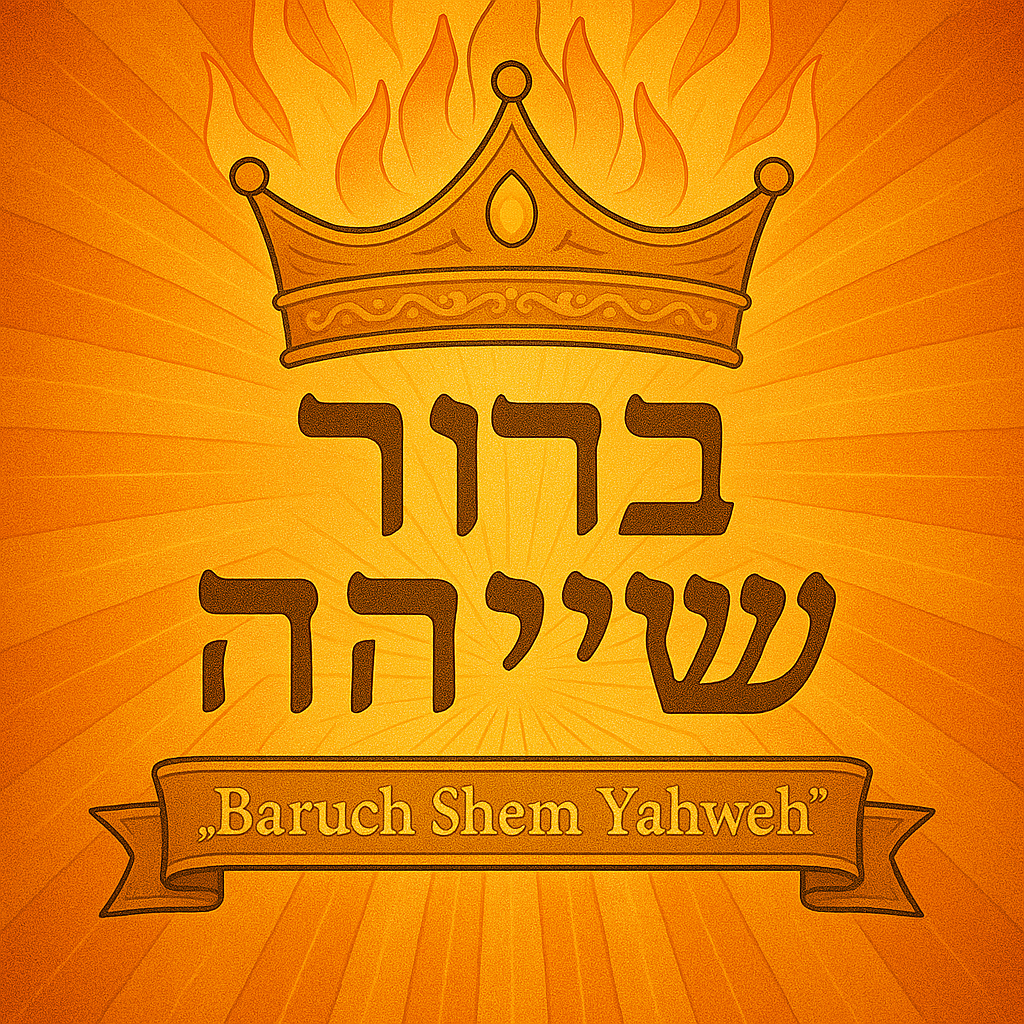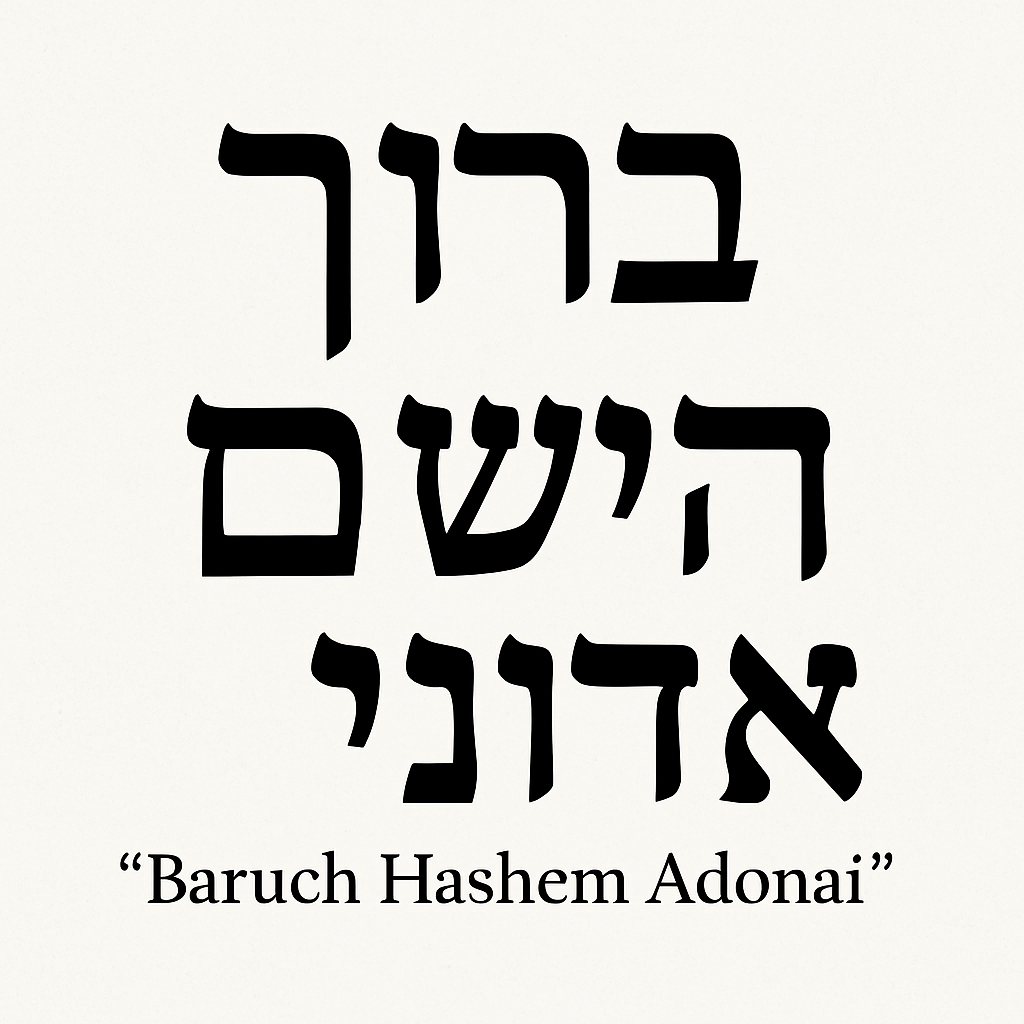
The phrase "Baruch Shem Yahweh" (בָּרוּךְ שֵׁם יְהוָה) can be translated as “Blessed [be the] Name [of] the LORD.” It’s a profound declaration of reverence, rooted in both biblical tradition and theological symbolism.
Meaning
- Baruch (בָּרוּךְ) means blessed or praised.
- Shem (שֵׁם) means name, often used to refer to God's essence or reputation.
- Yahweh (יְהוָה) is the Tetragrammaton, the most sacred name of God in the Hebrew Bible, signifying God's eternal, self-existent nature.
Significance
- Theological Weight: Invoking the Name of Yahweh is not casual—it reflects a deep acknowledgment of God's holiness, sovereignty, and personal relationship with His people. In Jewish tradition, the Name is so sacred that it is not pronounced aloud; instead, substitutes like Adonai or HaShem (“The Name”) are used (see the image graphic below).
- Liturgical Echoes: While "Baruch Shem Yahweh" isn't a standard liturgical phrase, it resonates with the line "Baruch Shem Kevod Malchuto Le'olam Va'ed" (“Blessed is the Name of His glorious kingdom forever and ever”), which is whispered after the Shema. This whispering reflects humility before divine mystery—except on Yom Kippur, when it is proclaimed aloud, symbolizing angelic purity.
- Scriptural Resonance: Variations of this phrase appear throughout the Hebrew Bible. For example, in Psalm 113:2, “Blessed be the name of the LORD from this time forth and forevermore.” Such verses emphasize the enduring nature of God’s praise.
- Devotional Use: Saying or meditating on this phrase can be a form of worship, a way to center the heart on God's majesty and presence. It’s a verbal act of sanctifying the divine Name, aligning the speaker with a long tradition of reverent praise.
- SOURCE: https://www.jewishchronicle.org/2013/11/26/what-is-the-significance-of-the-baruch-shem-prayer/
Baruch Hashem Adonai
Go to the button link below to listen to a pure, minimal, uncluttered chant designed for repetition, stillness, and deep reverence:
You can watch the original JESUS FILM and explore the entire media library on this official website below. This film is a perfect introduction to Yeshua Ha-Mashiach (Jesus Christ). Jesus constantly surprises and confounds us! Watch this amazing account of this miraculous life and who He claimed to be! Click on or touch the button below:

